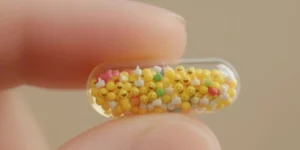Injecting Substances Poses Hidden Dangers Beyond The Needle
What are the primary health risks associated with injection drug use, particularly regarding the transmission of bloodborne pathogens and physical complications? Our counsellors are here to help you today.
FREE ASSESSMENT082 747 3422Administering a substance via injection involves delivering it into the body through a syringe or needle, commonly directly into the bloodstream. This method, frequently associated with drug administration, carries significant health risks, including the potential for transmitting HIV, hepatitis and other bloodborne pathogens. Additionally, injection drug use can cause physical complications such as collapsed veins, infections and abscesses, alongside various social and psychological repercussions.
Intravenous drug use or IV drug use, involves injecting drugs directly into a vein, allowing substances to enter the bloodstream rapidly. This method is sought after for its ability to deliver drugs quickly into circulation, achieving a faster and more intense high. Commonly injected drugs include cocaine, heroin, fentanyl, hydrocodone, oxycodone, morphine, methamphetamine, ketamine, PCP and sometimes prescription stimulants like Adderall. However, this method introduces significant risks, including the transmission of diseases and other health complications. Intravenous drug use requires a needle and syringe to inject the liquid drug form directly into the bloodstream, though some users may inadvertently inject into muscle or just under the skin, methods known as intramuscular injection and “skin popping,” respectively. Injecting drugs offers a swift, high concentration of the substance to the brain, highlighting both its appeal and danger.
Injecting a drug carries greater risks compared to other modes of consumption. Users face not just the consequences of the drug’s effects but also issues specific to the injection process, including:
- Contaminants: These are foreign substances mixed into drugs to modify their consistency or potency, often without the consumer’s awareness. This practice, common in illicit drugs like heroin and cocaine, aims to either extend the quantity to reduce production costs or to enhance the drug’s effects. Such contaminants, ranging from amphetamine to fentanyl and LSD, introduce unknown risks to users, potentially leading to unexpected reactions, toxicity or overdose due to their varied and potent nature.
- Binding Agents: When prescription tablets are crushed, dissolved and injected, the binding agents within these tablets—such as cellulose, talc and cornstarch—are also introduced into the bloodstream. These agents can block blood vessels, leading to inflammation in the lungs and damage to heart valves. This damage significantly raises the risk of infections like endocarditis.
- Pathogens: The use of non-sterile needles, especially those previously used by others, can introduce pathogens into the body. This practice can lead to the development of abscesses at the injection site and the spread of infections to vital organs, including the heart, brain and liver. Conditions such as endocarditis are notably common among individuals who inject drugs with contaminated equipment. Further to that shared needles can facilitate the transmission of severe infections, including hepatitis B, hepatitis C and HIV.
- Needle-Related Injuries: Repeated improper needle use can cause a condition known as “drug abuser’s elbow,” where muscle tissue around the elbow turns into scar tissue. Skin injections or “skin popping,” can result in persistent sores, while intravenous injections can cause vein scarring making future injections challenging and disrupting normal blood flow.
Injection practices involve not only illicit drugs but also prescription medications and performance enhancers with significant risks across the board. To combat these dangers, initiatives like needle exchange programs have been developed to reduce disease transmission and support recovery by providing clean needles and access to education and counselling.
What are the primary health risks associated with injection drug use, particularly regarding the transmission of bloodborne pathogens and physical complications? Get help from qualified counsellors.Injecting Substances Poses Hidden Dangers Beyond The Needle

Alcohol hospitals provide medical and psychological help to individuals to recover from alcoholism. These hospitals…

The Medication Nobody Wants to Talk About, Until It Saves Their Life For all the…

A detox program is a form of treatment provided for those addicted to alcohol or…
How does transitional living support individuals in recovery and help them integrate back into society after completing an inpatient rehab program?
What are the key benefits of drug addiction rehab following the drug detox process?
Inpatient Rehab
Rehab care is a good option if you are at risk of experiencing strong withdrawal symptoms when you try stop a substance. This option would also be recommended if you have experienced recurrent relapses or if you have tried a less-intensive treatment without success.
Outpatient
If you're committed to your sobriety but cannot take a break from your daily duties for an inpatient program. Outpatient rehab treatment might suit you well if you are looking for a less restricted format for addiction treatment or simply need help with mental health.
Therapy
Therapy can be good step towards healing and self-discovery. If you need support without disrupting your routine, therapy offers a flexible solution for anyone wishing to enhance their mental well-being or work through personal issues in a supportive, confidential environment.
Mental Health
Are you having persistent feelings of being swamped, sad or have sudden surges of anger or intense emotional outbursts? These are warning signs of unresolved trauma mental health. A simple assesment by a mental health expert could provide valuable insights into your recovery.
Is My Loved One Addicted?
Your responses are private and not stored.
It’s Professional.
Clinically grounded
Clear, practical guides on addiction and recovery, based on recognised treatment principles and South African experience.
Therapy for addictionIt’s Affordable.
Straight talk on costs
We unpack typical fees, medical-aid issues, and funding options so you can compare treatment choices without sales pressure.
Paying for treatmentIt’s Convenient.
On your terms
Short explainers, checklists, and FAQs you can read, save, and share in your own time, from any device.
What to expect in rehabIt’s Effective.
Better decisions
We focus on evidence-based guidance and honest discussion of risks, relapse, and family impact to support long-term recovery.
Evidence-based
















